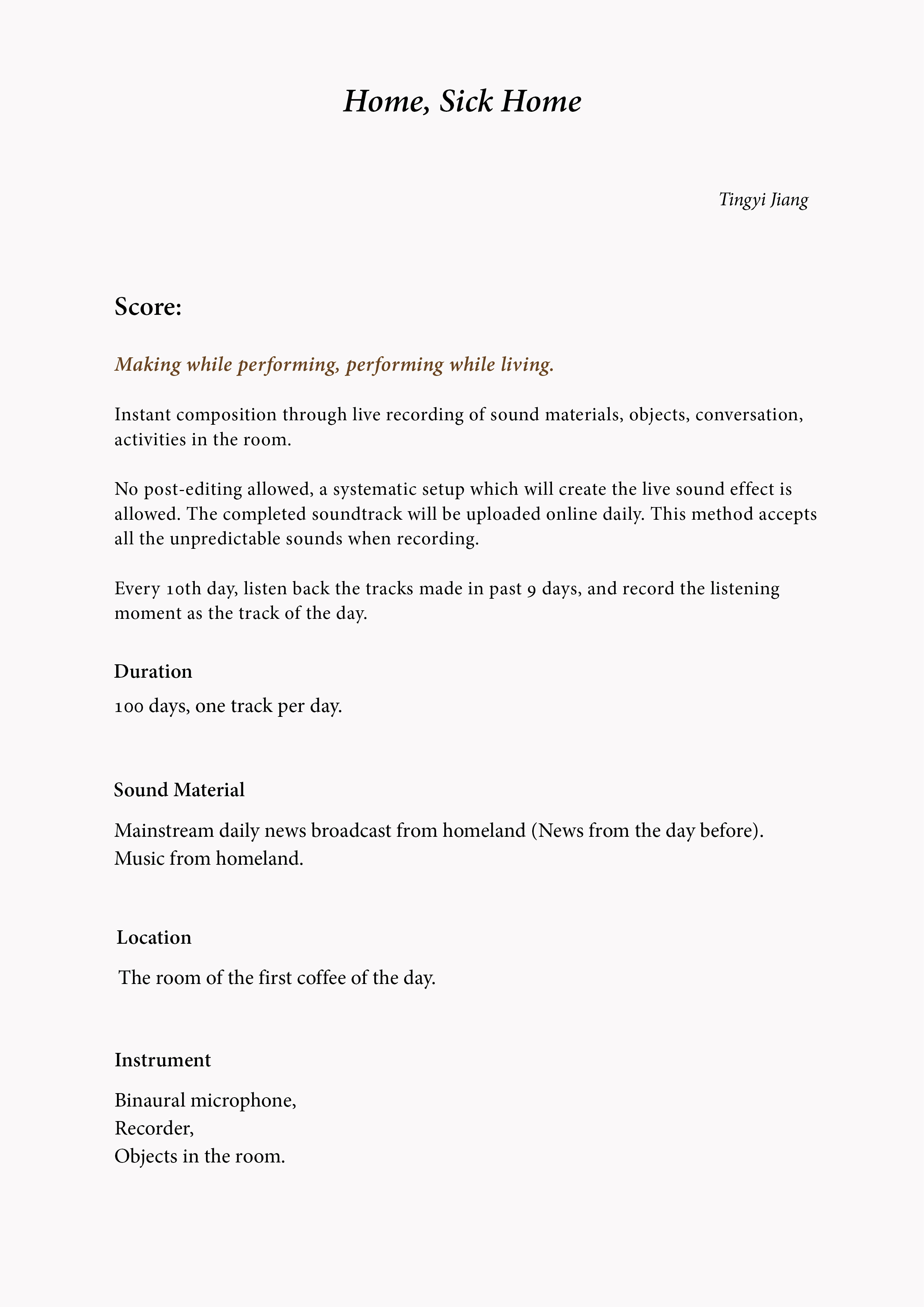Home, Sick Home
Daily Performance / Instant Composition
100 Days, 2022
This 100-day performance explores sound as both memory and medium. Anchored by Xinwen Lianbo—the daily state news broadcast in China—this project reflects on the lasting impact of sonic environments tied to notions of home, identity, and displacement.
Growing up, the 7pm broadcast was ambient sound during family dinners. Years later, after nearly a decade away from home, hearing it again in a different country triggered a complex response: those nostalgic sounds and the alienated narratives make me realised that “hometown” exists in memory but not geography.
Using a binaural microphone, I created one composition per day by recording live interactions with my surroundings: the news, hown town music, domestic objects, conversations, and daily routines. These instant compositions follow a strict rule—no post-editing—allowing unexpected sounds and interruptions to become part of the work.
Sound becomes both material and method. The broadcast acts as a state performance, while my body and actions perform in response—blurring the line between passive listening and active composition, daily life and staged action.
* Xinwen Lianbo is a mouthpiece for the party and the state. This program is used as a medium for the state to announce government announcements and meetings, commentaries on major economic and policy issues, and the activities of national leaders. It is the news source with the widest reach amongst China's large population, and so it provides the Party with the opportunity to influence the masses. Watching the bulletin has traditionally been ‘a national ritual at the family dinner table.’


This project and I exist in symbiosis—every performative action I take within it generates real consequences in my daily life. Each iteration becomes a collaborative performance shaped by the state broadcast, the surrounding situation, and the people present.
Through Home, Sick Home, I began to embrace living with displacement, which opened up my awareness and understanding of dissonance and contradiction. Displacement is not only the subject of the work; it is the modality that this project operates on. Both the audience and I are displaced: from the cultural and political memory embedded in the broadcast, and from the intimate space of everyday life.
Home, Sick Home is at once obscure and figurative—a sonic space shifting from state apparatus to private room, from Western public space to Eastern musical memory. I document space through sound, but also rearrange, reconstruct, and reimagine it in the act of listening.
This is a practice of living, listening, performing, and researching within the ‘in-between.’
Presented at:
Sonic Sleep, The Hague 2025
On Air - On Site 2023
Jelly Sunday by skyte #13 - Radio Bollwerk - 31.12.2023
Sound Arguments 2023